Lee Cronin | 1hr 37min

The opening minutes of Evil Dead Rise may land us right in the middle of another ‘cabin in the woods’ horror story, complete with naïve college friends and a gruesome lakeside struggle, but director Lee Cronin veers wildly away from this classic setting once his prologue has wrapped. Instead, this reinvigoration of Sam Raimi’s franchise unexpectedly takes us to a Los Angeles apartment building, where families and neighbours unknowingly reside over an old, forgotten chamber. Only when an earthquake shakes its foundations is the entrance uncovered, inviting siblings Danny and Bridget to investigate the strange vinyl records and skinbound tome that contain frightening records of demonic possession. From there, the hellish Deadites which tormented Ash Williams through three movies and a television series are unleashed, mutilating the intimate bonds of a young, single-parent family.
So strong is Cronin’s standalone narrative in Evil Dead Rise that the bookends vaguely linking it back to the series’ roots are entirely redundant, holding little weight or relevance to the rest of the film. There are no Bruce Campbell appearances pandering to fan nostalgia, save for a voice cameo on one of the phonograph records, nor any attempts to recapture Raimi’s brand of comedy-horror slapstick. Cronin instead brings a refreshing creativity to the intellectual property, stripping back the camp humour and laying into the terror of seeing one’s mother transform into a hideous creature, unbound by maternal instincts of love and protection.
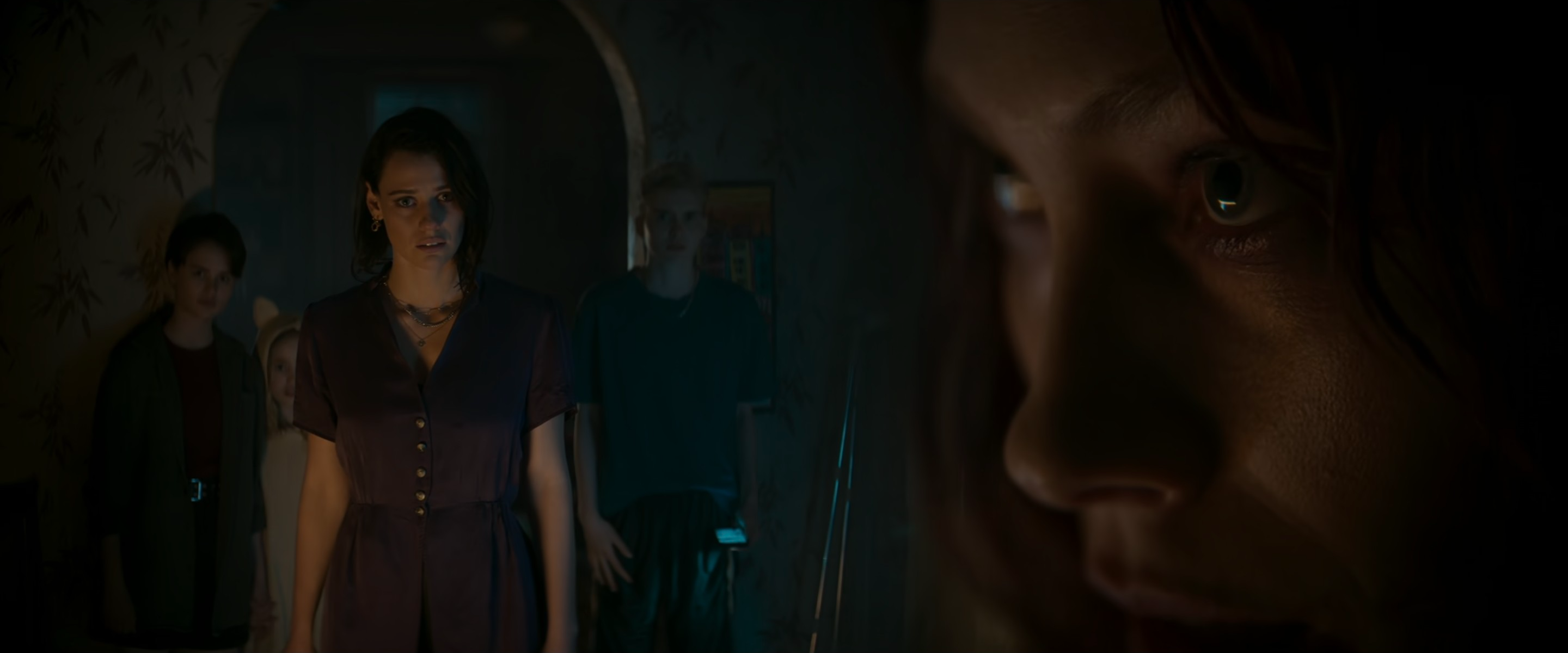
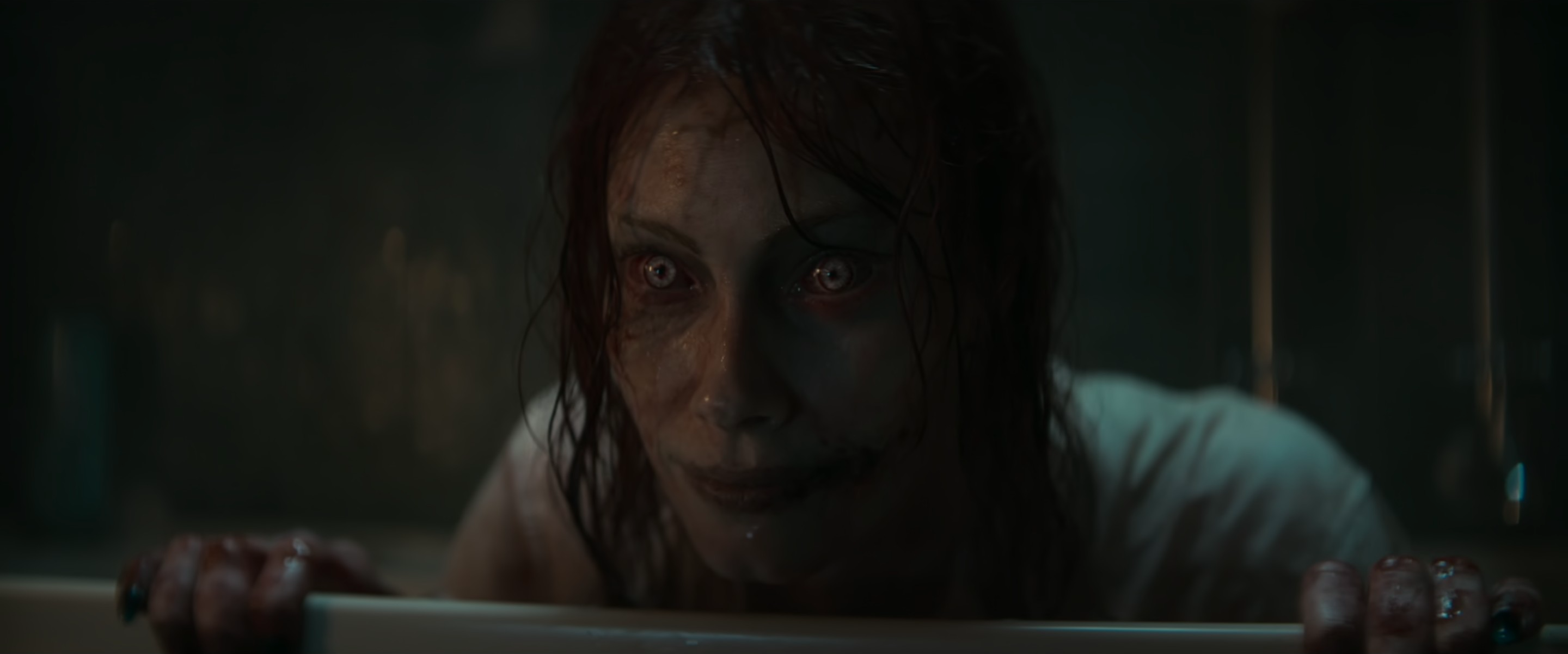
Therein lies the power of Cronin’s allegory in Evil Dead Rise, slowly twisting the image of a loving family into that of dysfunctional, abusive household. Ellie is the main drawcard here as the first to be turned, possessed by the grinning, deep-voiced Deadite who understands exactly what combination of gaslighting, love bombing, and guilt tripping gets under the children’s skins. She is the dark shadow of motherhood in demonic form, relishing her freedom from the “parasites” who drain her energy, while seeking to inflict a physical and psychological pain on them that will raise them in her malevolent likeness. Once that line is crossed, this Deadite effectively creates a family of her own, evolving into a Lovecraftian monster that manifests Cronin’s subtext as grotesque, disfigured body horror.
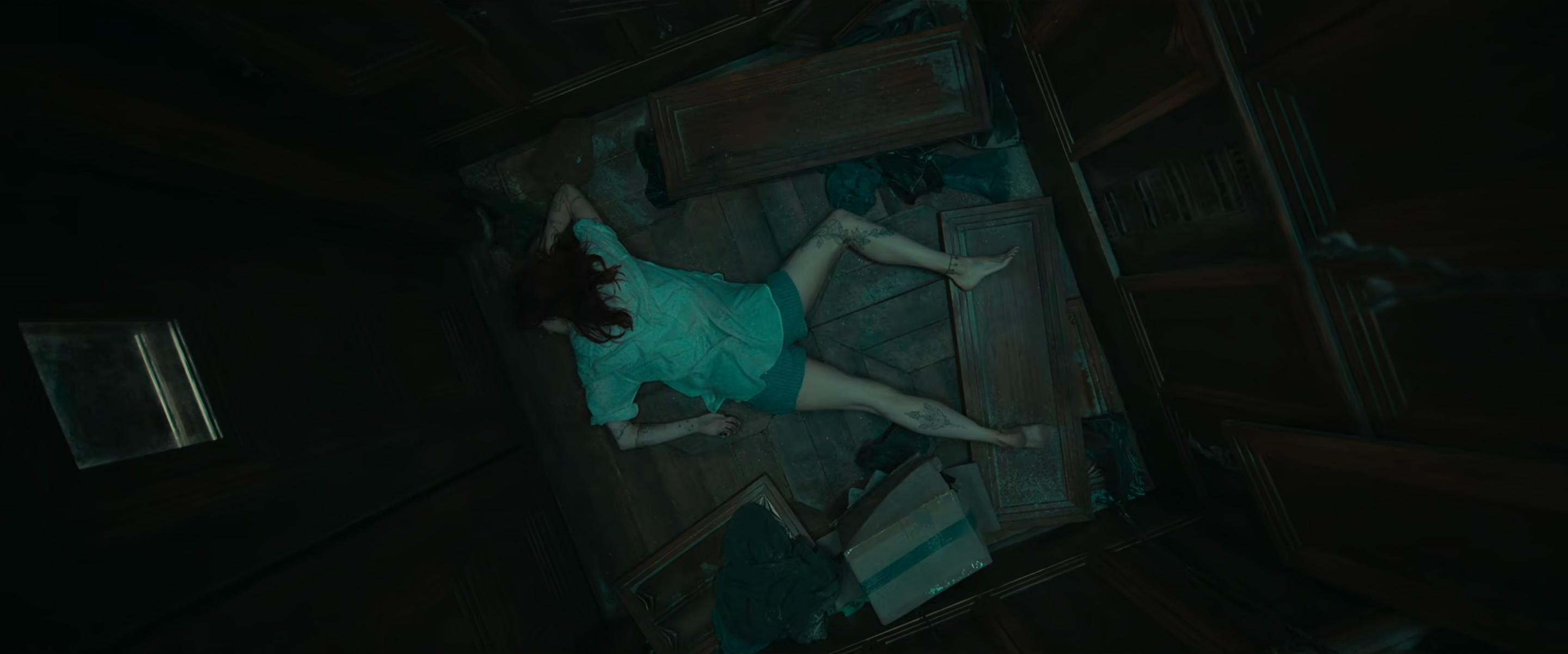
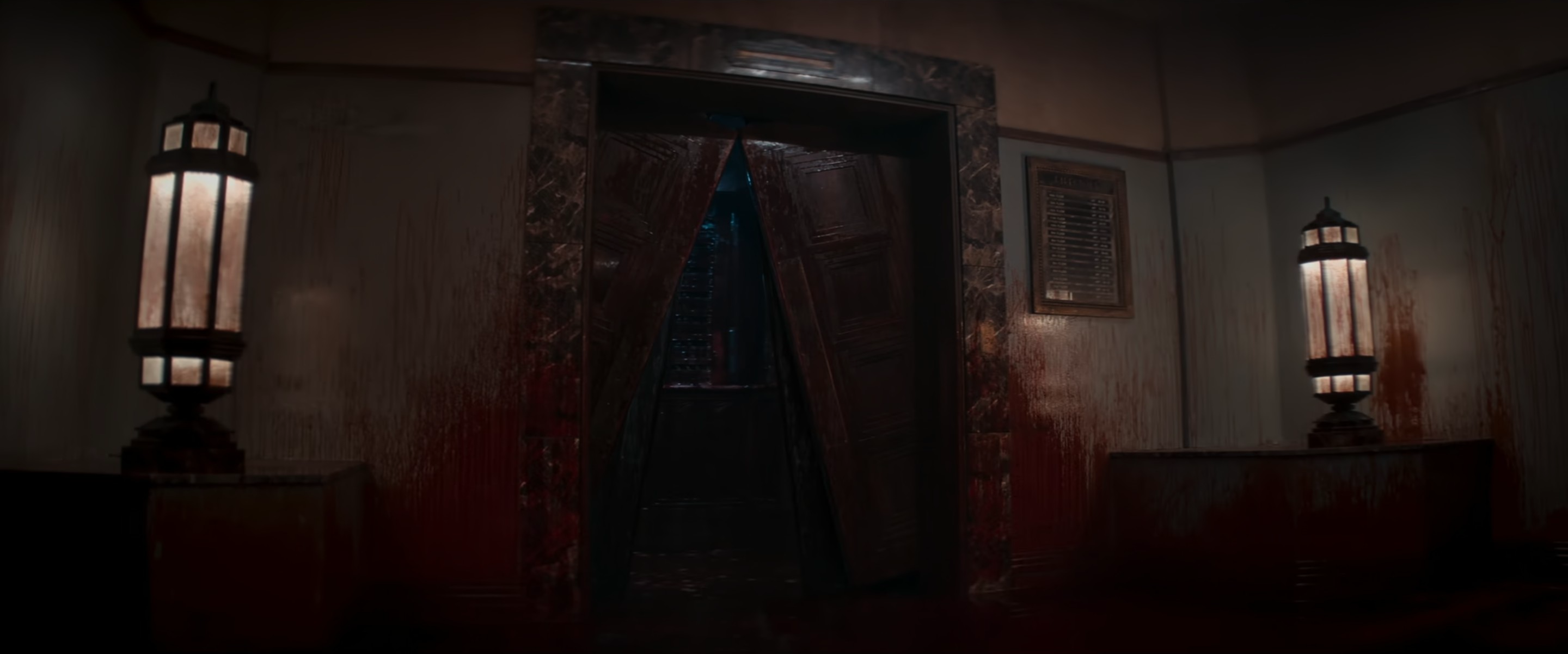
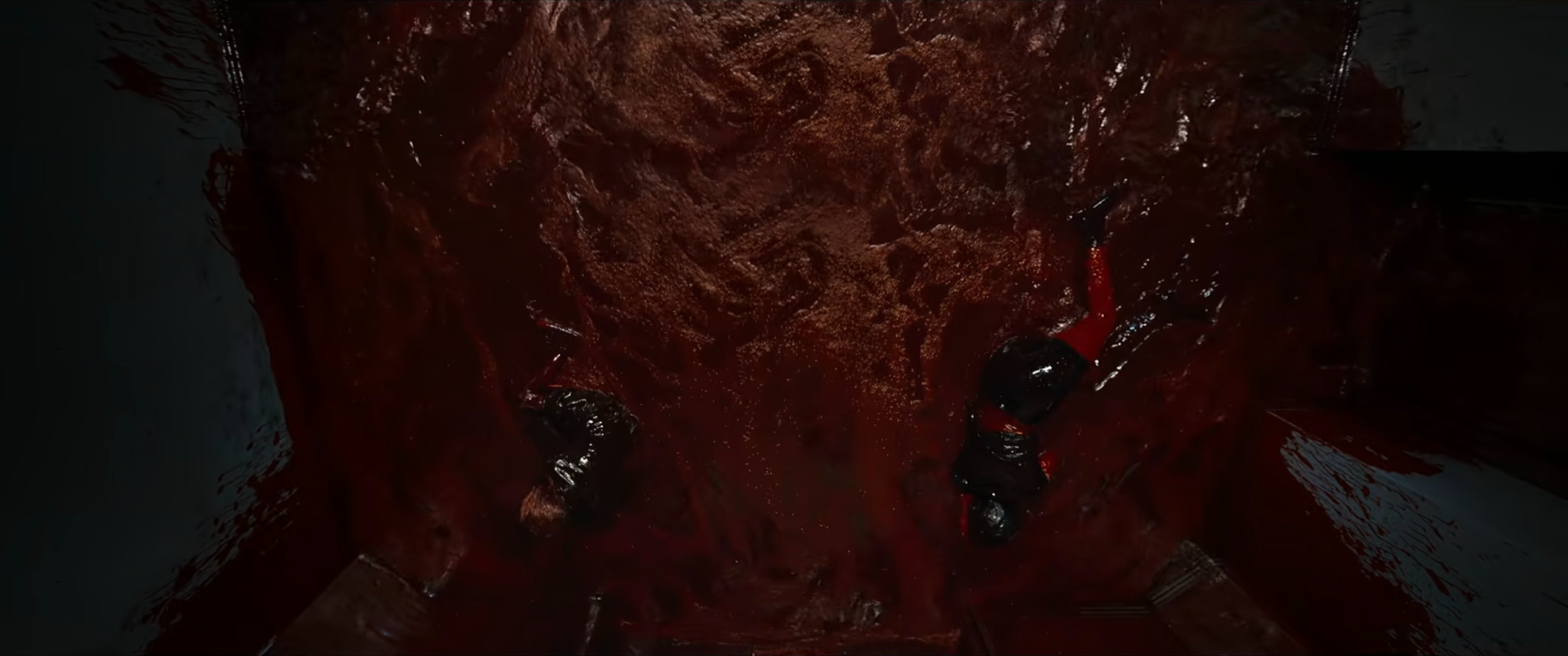
Outside of the possessed Ellie though, another mother figure begins to emerge as her direct inverse. Beth is her slightly more alternative sister whose job as a band roadie has kept her distant from family life, and yet who is now forced to reckon with her own maternal instincts upon discovering her unplanned pregnancy. With Danny, Bridget, and Kassie’s loving mother gone and their absent father firmly out of the picture, Beth recognises the void that has suddenly opened in their lives, and the part she must play in filling that as tensions rise. Evil Dead Rises is not subtle with its symbolism, but by the time it is representing Beth’s escape from a blood-filled elevator as an abortion and directly referencing The Shining, the expectation of restraint has long-gone. Even in Cronin’s capable hands, the Evil Dead series works best as an exercise in visual sensationalism, provoking a visceral disgust towards the breakdown of close relationships.
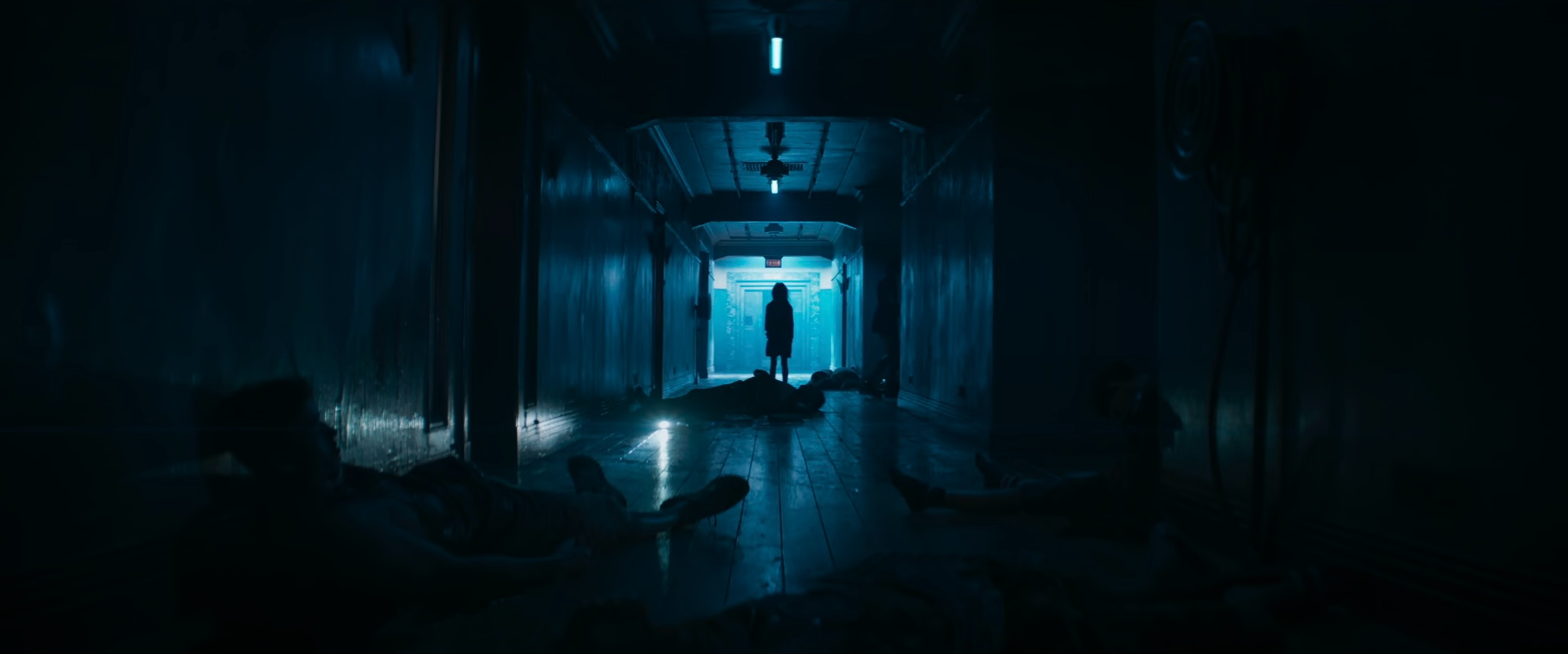
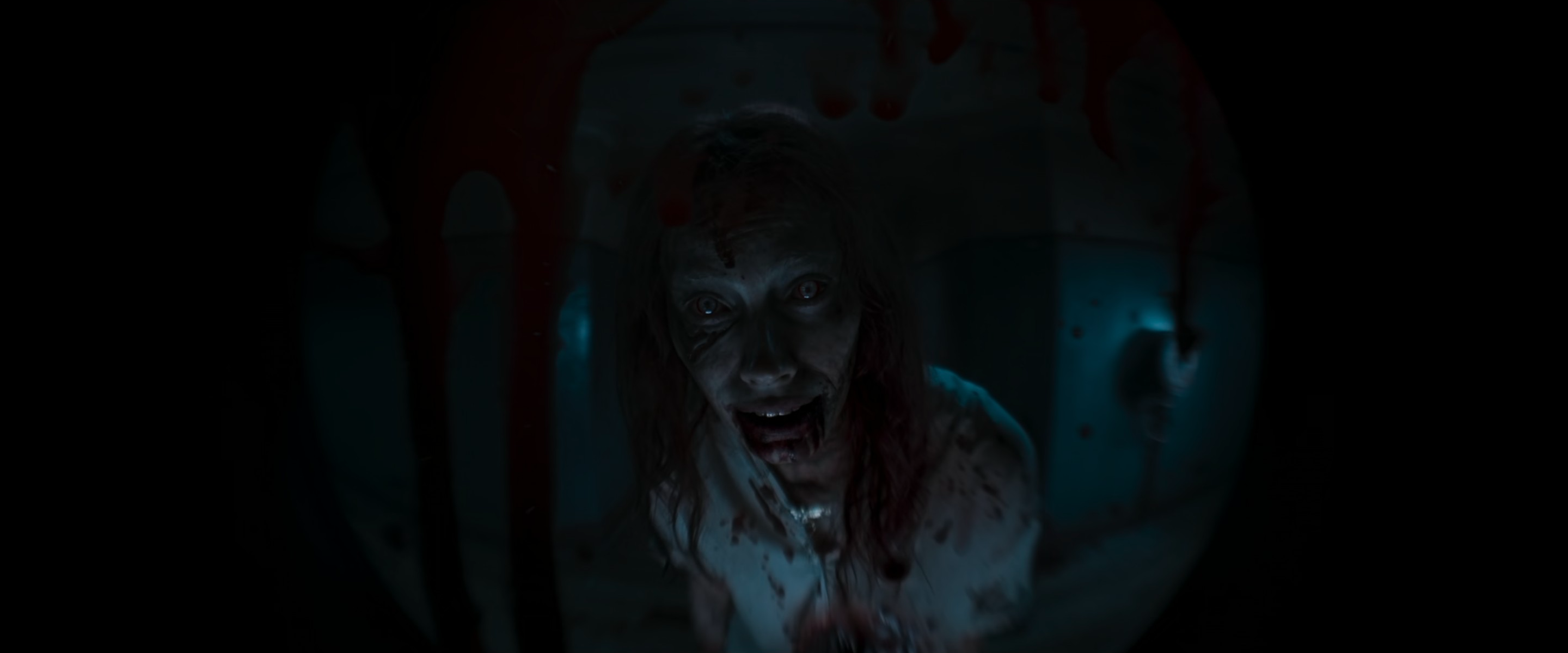
As a director of piercing cinematic style, it is tough to deny Cronin’s talents here too. Besides the ghastly makeup, gory practical effects, and point-of-view tracking shots which Raimi had already set a standard for, Cronin brings his own repertoire of techniques to the table, drawing inspiration from Roman Polanski’s Apartment trilogy by capitalising on the claustrophobic urban setting. In the dim, blue wash of a flickering emergency lights, the camera slowly dollies down a corridor of bloody bodies, and peephole shots break the fourth wall as Ellie’s pale face stares at us through fish-eye lenses.
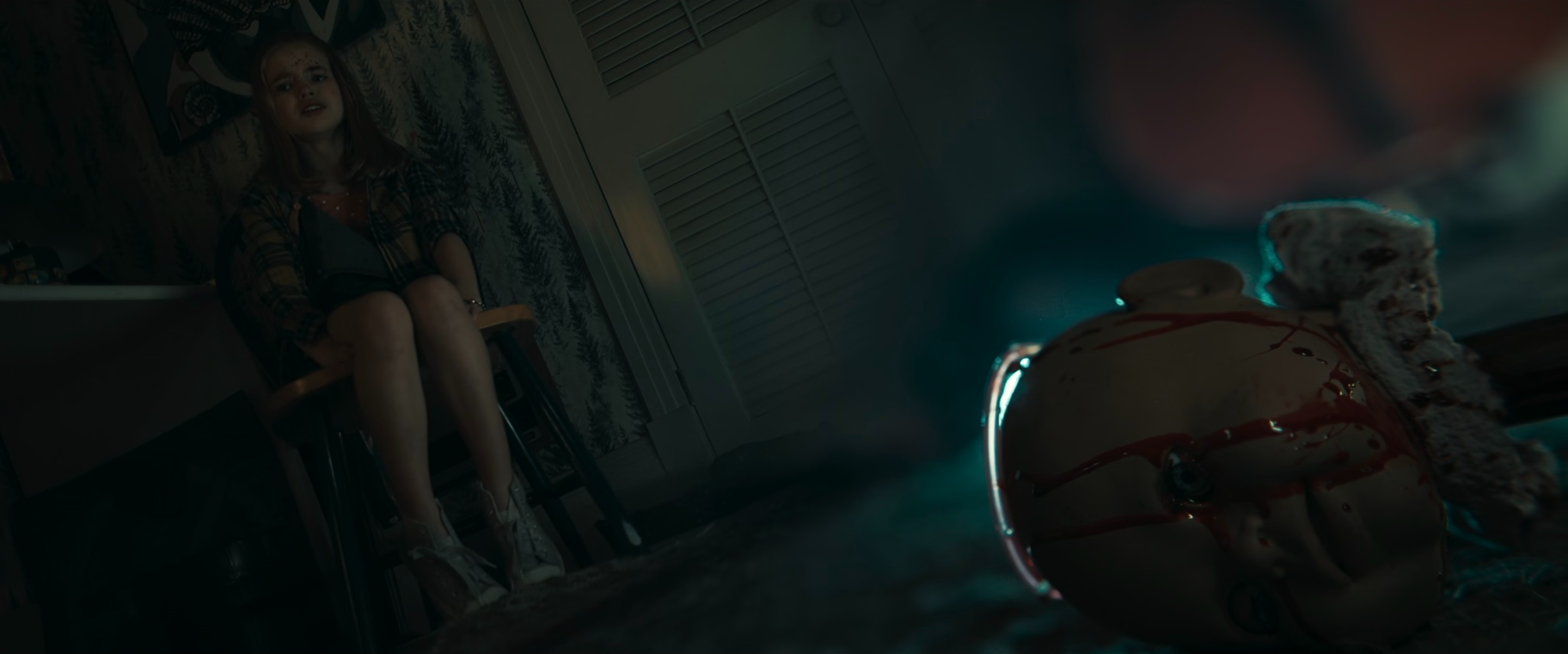
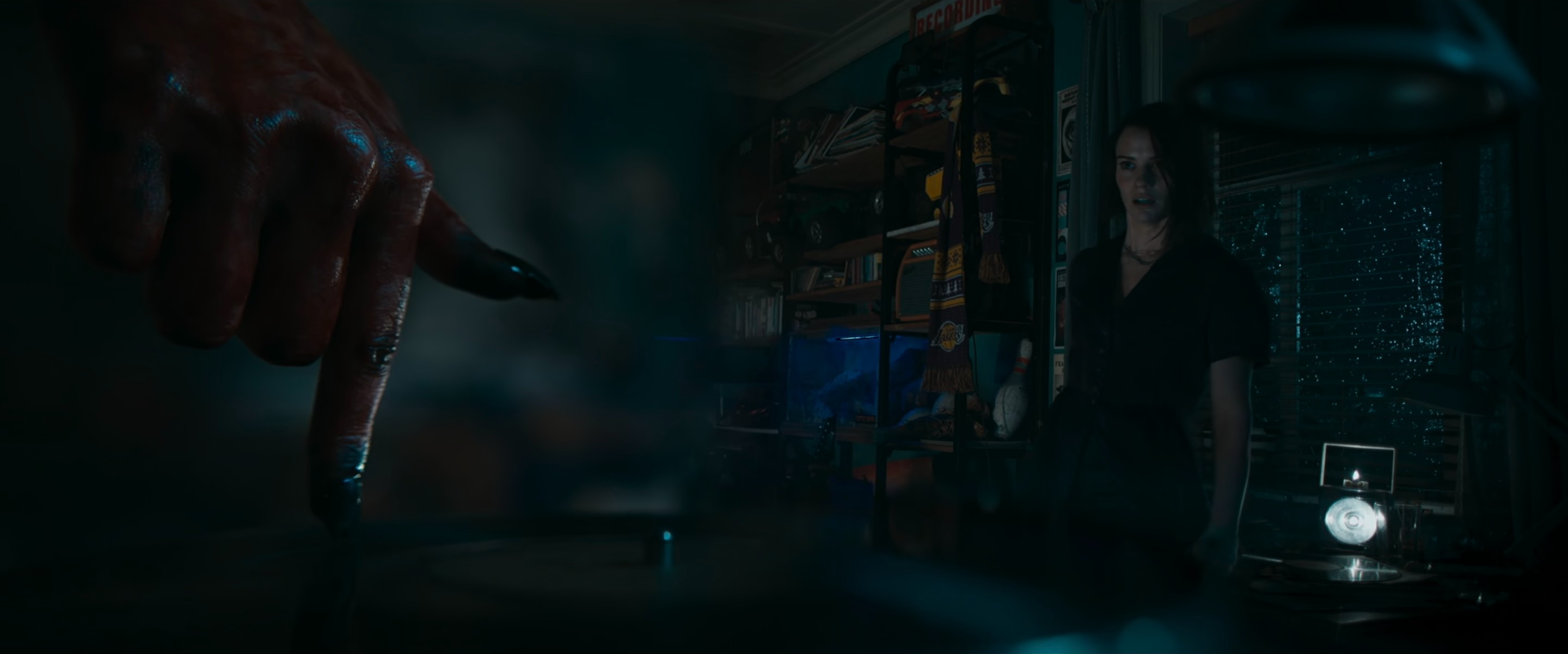
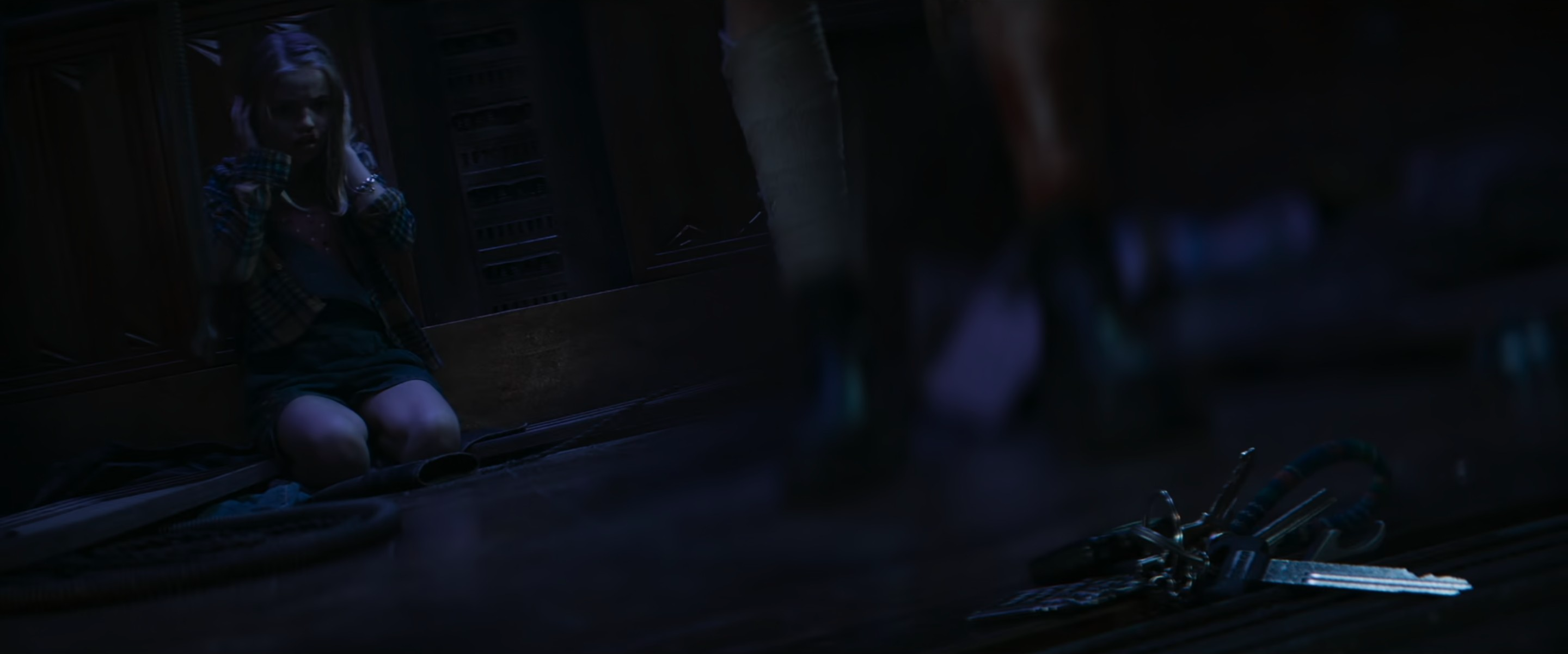
Perhaps most inspired of all though is the array of split diopter shots where Brian de Palma’s influence can be felt, tightly framing crucial details such as Kassie’s doll or a set of keys on one side of the frame, while building suspense against the actors staged in canted angles behind. Cronin employs each with discerning purpose throughout Evil Dead Rise, turning homely, domestic spaces into battlefields of violent abuse and paranoid mistrust. Only when the mother’s place is restored can innocence finally be saved from the Deadites’ chaos, as Cronin shrewdly pivots the horror of Raimi’s extravagant creation into a hideous perversion of the family unit, threatening the foundations of a stable, nurturing society.
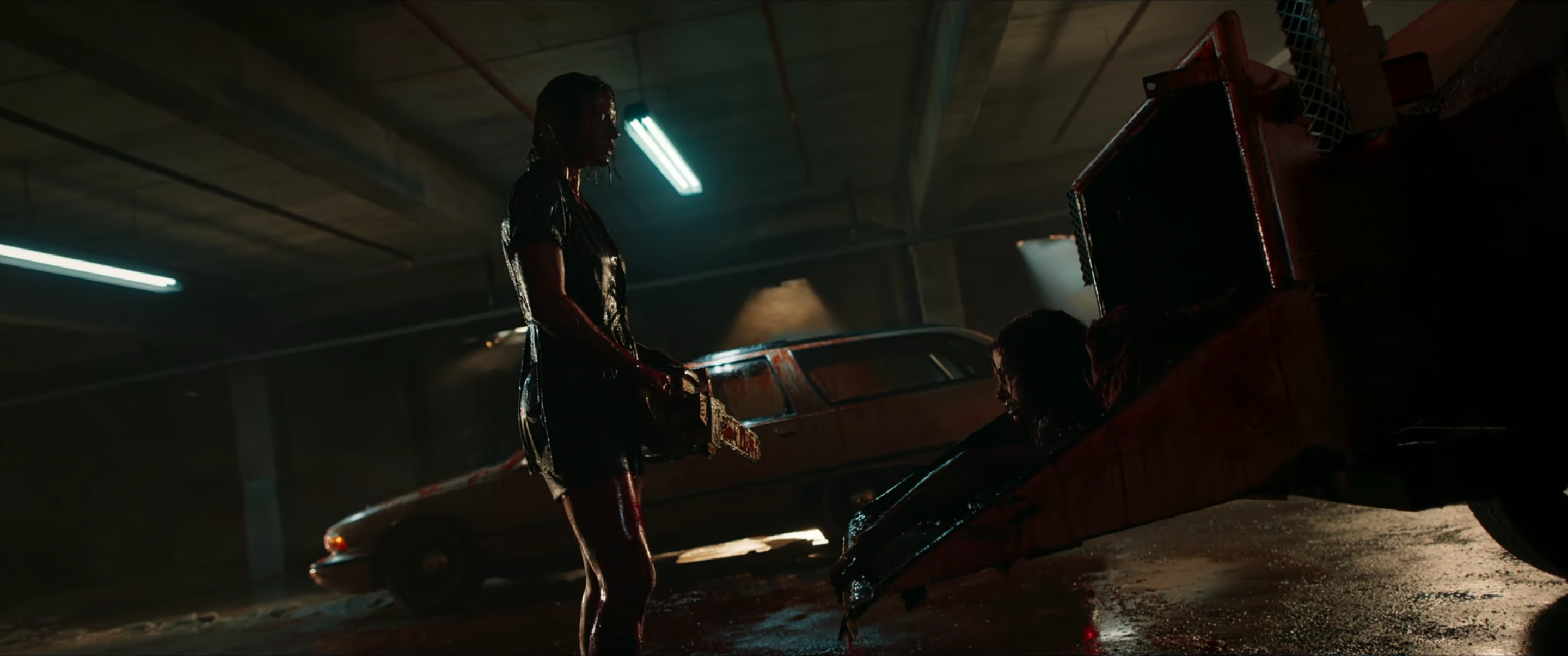
Evil Dead Rise is currently streaming on Netflix and Binge, is available to rent on Apple TV, YouTube, and Amazon Video, and the physical media available to purchase on Amazon.


Pingback: The Best Films of 2023 – Scene by Green